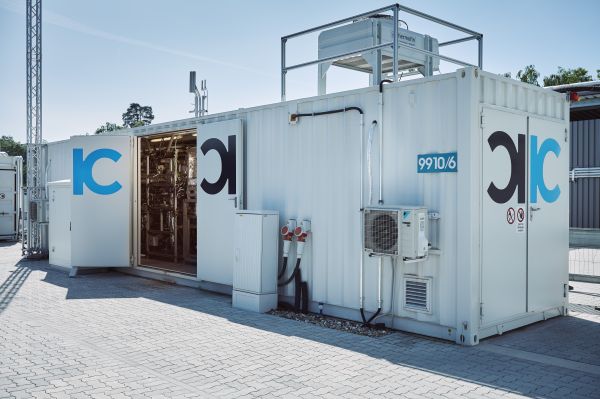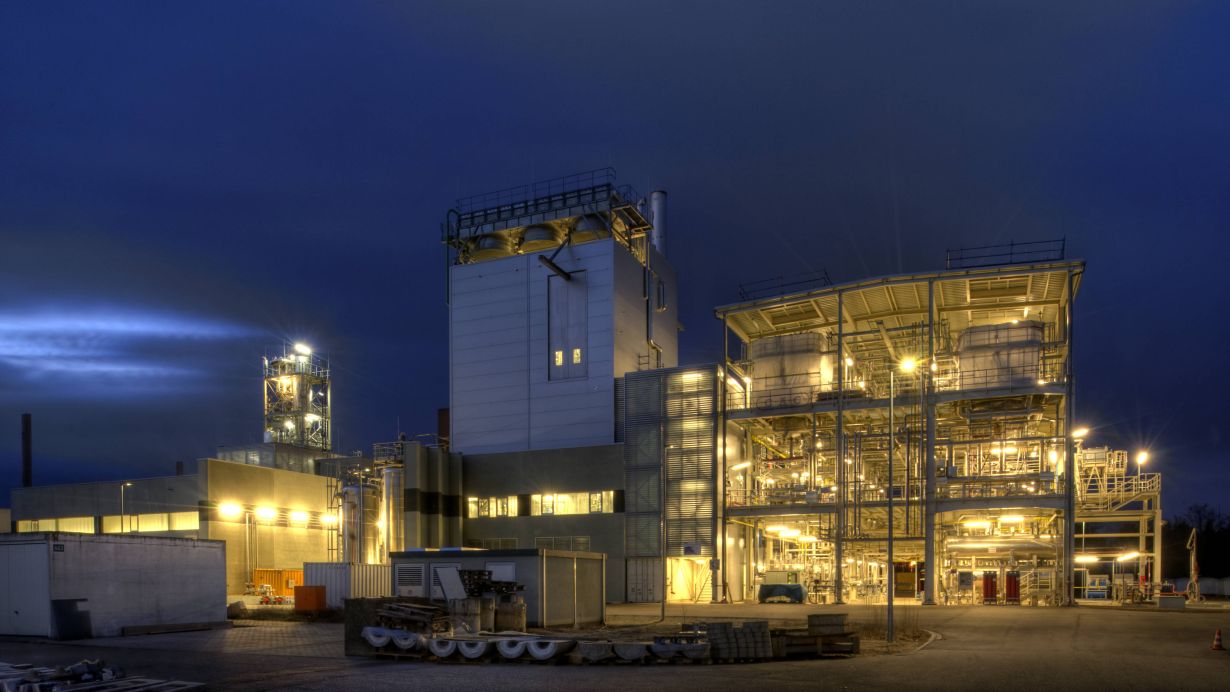Synthetic fuels produced using renewable energy sources have the potential to reduce CO2 emissions by as much as 90 percent compared to conventional fuels. In principle, they can already be used for nearly any means of transport, but producing them at an industrial scale remains an obstacle. Speeding up the large-scale production of such fuels is the aim of the InnoFuels platform project coordinated by the Karlsruhe Institute of Technology (KIT). Innofuels facilitates networking among stakeholders, analyzes research projects, and launches new projects when necessary. An interim assessment indicates that challenges such as resource scarcity, supply chain problems or lack of incentives can only be overcome through cooperation.
In addition to building stakeholder networks, Innofuels prioritizes establishing suitable conditions for the technical and economic advancement of e-fuels. Building on this, the project partners seek to identify options for the political and economic decisions needed to ramp up the production of power-based liquid fuels and advanced biofuels (also referred to as reFuels).
Since February 2023, the project has been analyzing the needs and interests of the various stakeholder groups. “It became clear that challenges like resource scarcity, supply chain problems, lack of market incentives, and internationally inconsistent or inadequate regulatory frameworks can’t be addressed in isolation; we can only overcome them through cooperation,” said project coordinator Dr. Olaf Toedter of KIT’s Institut für Kolbenmaschinen (Institute of Internal Combustion Engines).

Seven Pillars and Strong Academic, Business and Government Partners
To confront such challenges, InnoFuels has established working groups in seven fields; each working group is headed by a team of academic, business and government project partners. The teams organize regular workshops for those involved or interested in the projects, draw up meta-analyses and roadmaps to document available research results, and assess what is feasible. The platform is also in close contact with several government-funded projects for the construction of power-to-liquid and advanced biofuels plants.
The subject groups:
Production: Aims to draw up a concise survey of the process paths available for the production of renewable fuels. The survey will only address processes that are technically advanced enough for a transition to industrial production to be conceivable.
Supply chain: Focuses on intelligently integrating and linking all of the processes needed to produce reFuels. It examines the connections between supplies of raw materials, production of hydrogen, treatment with carbon, and the subsequent process for producing the actual fuels.
Market and regulation: Identifies and analyzes the market and regulatory requirements for bringing the fuels to market, with the goal of determining how a future reFuels market should be organized and what business models are needed for long-term viability.
Sustainability: This group also deals with the legal framework, but with a particular focus on sustainability, European and nationally recognized certification systems, and the role to be played in these systems by the new fuels.
Aviation: Work on a transition to renewable energy sources in aviation has been in progress for a few years. Sustainable aviation fuels (SAF) can already be blended into aviation fuel for use in existing aircraft engines today. This working group deals with actions directed at enabling the use of pure SAF by the statutory deadline in 2050.
Shipping: To date, alternative fuels for the shipping industry (sustainable marine fuels – SMF) have seen little use, accounting for only 0.1 percent of global documented fuel consumption. The working group for shipping examines possible incentive systems and analyzes the compatibility of SMFs with the existing infrastructure in ports and on ships.
Roads and railways: Compared with other applications, road transport currently uses the most energy. For both road and rail transport, renewable fuels can play an important role as a supplemental technology. So-called drop-in fuels that meet existing fuel standards are often discussed as alternative fuels in this regard.
The InnoFuels Innovation Platform
InnoFuels brings together research institutes, energy and fuel suppliers, manufacturers from the automotive, aviation and shipping industries, and German state ministries.
Partners in the project are: Baden-Württemberg Ministry of Transport; CENA, Hessen Trade & Invest GmbH; Condor Flugdienst GmbH; Deutsches Biomasseforschungszentrum; German Aerospace Center; e-mobil BW GmbH; Frontier Economics Limited; Hessian ministry of economics, energy, transport and housing; Hochschule RheinMain; Infraserv GmbH & Co. Höchst KG; Karlsruhe Institute of Technology (KIT, coordination and applications for roads and railways working group); Lufthansa AG; MEO Carbon Solutions GmbH; Mineralölraffinerie Oberrhein GmbH & Co. KG; Porsche AG; International PtX Hub Berlin; Rolls-Royce Solutions GmbH; University of Rostock, Department of Piston Machinery and Internal Combustion Engines; Volkswagen AG; Center for Solar Energy and Hydrogen Research Baden-Württemberg.
The project was launched in February 2023 and is scheduled to run for 3.5 years, ending in August 2026. Germany’s Federal Ministry for Digital and Transport is funding InnoFuels with EUR 5.24 million as part of its master plan for renewable fuels. The funding guidelines for developing renewable fuels are coordinated by NOW GmbH and implemented by VDI/VDE Innovation + Technik GmbH and Fachagentur Nachwachsende Rohstoffe e. V.
Being “The Research University in the Helmholtz Association”, KIT creates and imparts knowledge for the society and the environment. It is the objective to make significant contributions to the global challenges in the fields of energy, mobility, and information. For this, about 10,000 employees cooperate in a broad range of disciplines in natural sciences, engineering sciences, economics, and the humanities and social sciences. KIT prepares its 22,800 students for responsible tasks in society, industry, and science by offering research-based study programs. Innovation efforts at KIT build a bridge between important scientific findings and their application for the benefit of society, economic prosperity, and the preservation of our natural basis of life. KIT is one of the German universities of excellence.

